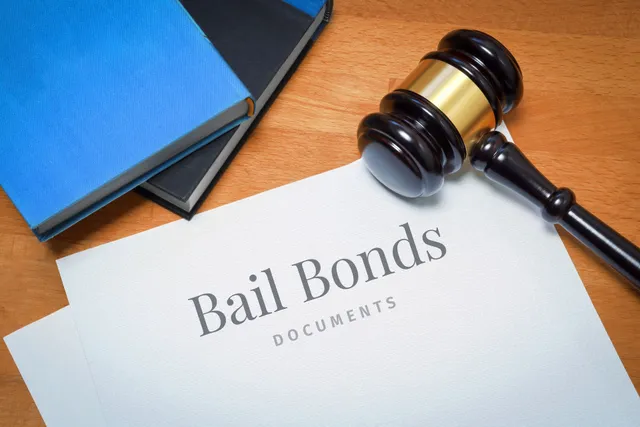No Show, No Go: Consequences of Missing Your Court Date
Missed Court? Here’s What Happens Next
Missing a court date while out on bail can have serious legal consequences. Whether you’ve secured a bail bond or are navigating the legal system for the first time, failing to appear can lead to penalties, additional charges, or even bond forfeiture. But what happens if either the plaintiff or defendant misses their scheduled court appearance?
This blog post aims to shed light on the ramifications for both parties and the broader implications for the justice system.
Whether you’re a seasoned legal professional or someone new to the legal system, understanding these repercussions is vital.
Why Court Attendance is Crucial
Court dates are not optional. When a judge sets a date, both parties are required by law to appear. This requirement ensures the fair administration of justice and prevents unnecessary delays in the legal process. Courts are already strained with heavy caseloads, so missing a scheduled appearance further complicates matters.
Additionally, attending court shows respect for the judicial process. It’s an acknowledgment that you take the matter seriously, whether you’re a plaintiff seeking justice or a defendant protecting your rights. Being absent is seen as a sign of disrespect, and courts do not take it lightly.
Courts operate on strict schedules to manage numerous cases effectively. Missing your court date disrupts this flow, leading to delays that can affect other cases. This ripple effect is why courts impose severe penalties for not showing up.
What Happens If the Plaintiff Doesn’t Show Up?
Default Dismissal
If the plaintiff, who initiates the lawsuit, fails to appear in court, the judge may dismiss the case. This dismissal is often “without prejudice,” meaning the plaintiff can refile the case.
Waiving Rights
By not appearing, the plaintiff risks waiving the right to present their case. They lose the opportunity to provide evidence and testimony that could support their claims.
Financial Consequences
Court fees and legal expenses already incurred may not be recoverable. The plaintiff could also be ordered to pay the defendant’s legal costs, depending on the jurisdiction and specific case circumstances.
What Happens If the Defendant Doesn’t Show Up?
Default Judgment
If the defendant does not appear, the court may issue a default judgment in favor of the plaintiff. This means the plaintiff wins the case automatically, provided they have enough evidence.
Loss of Defense
By absenting themselves, defendants forfeit the chance to present their side of the story, effectively giving up any defenses or counterclaims they might have had.
Additional Penalties
In some jurisdictions, the court may impose additional fines or penalties on the absentee defendant. These could range from financial sanctions to more severe repercussions like asset seizure.
Contempt of Court
Civil Contempt
Failure to appear can result in a contempt of court charge. Civil contempt involves penalties designed to compel compliance, such as fines or additional court orders.
Criminal Contempt
In more severe cases, a judge may charge a party with criminal contempt. This can lead to jail time, particularly if the absence is perceived as a deliberate attempt to disrupt the judicial process.
Impact on Future Proceedings
Being found in contempt of court can have lasting repercussions. It can affect the outcome of the current case and influence how the court views a party in future legal matters.
Rescheduling and Continuances
Valid Excuses
There are legitimate reasons for missing a court date, such as medical emergencies or unforeseeable events. However, these must be documented and communicated to the court promptly.
Filing for Continuance
A party can request a continuance to reschedule their court date. This request must be made before the scheduled appearance and typically requires approval from the judge.
Court’s Discretion
Judges have the discretion to grant or deny continuance requests. The decision often depends on the reason for the absence and the case’s overall impact.
Impact on Legal Representation
Attorney’s Role
An attorney can appear on behalf of their client, but there are limits. Some proceedings may require the physical presence of the plaintiff or defendant.
Communication is Key
It’s crucial to maintain open communication with legal counsel. Informing your attorney about potential conflicts or issues can help mitigate the consequences of missing a court date.
Ethical Obligations
Lawyers have ethical obligations to inform clients about the importance of court appearances and the potential repercussions of non-attendance.
Impact on Case Settlement
Negotiation Leverage
Failing to appear can weaken a party’s negotiating position. It signals to the other side that they may have the upper hand.
Alternative Dispute Resolution
If a party consistently fails to attend court, the judge may recommend alternative dispute resolution methods, such as mediation or arbitration.
Court’s Perception
Repeated absences can negatively affect how the judge perceives a party, influencing decisions on settlements and other case-related matters.
Psychological and Emotional Toll
Stress and Anxiety
The prospect of missing a court date can cause significant stress and anxiety for both parties. Understanding the potential consequences can help alleviate some of this burden.
Impact on Relationships
Legal battles often strain personal relationships. Failing to appear in court can exacerbate these tensions, affecting family and social dynamics.
Support Systems
Leaning on support systems, such as friends, family, or professional counselors, can help manage the emotional toll of legal proceedings.
Financial Implications
Cost of Non-Appearance
Beyond court fees, there are hidden costs associated with missing a court date. These can include lost wages, increased legal fees, and potential fines.
Long-Term Financial Impact
A default judgment against a defendant can lead to wage garnishment, asset seizure, and long-term financial instability.
Mitigating Financial Risks
Properly preparing for court appearances and understanding the financial risks can help mitigate these long-term consequences.
Social Stigma
Public Perception
Legal issues often carry a social stigma. Missing a court date can amplify negative perceptions, affecting personal and professional reputations.
Privacy Concerns
Court proceedings are often public records. Absenteeism can draw unwanted attention, leading to privacy concerns and potential social backlash.
Rebuilding Reputation
Addressing legal obligations responsibly and transparently can help rebuild reputation and trust within the community.
Conclusion
Missing a court date is not just a minor inconvenience; it can have far-reaching consequences for both plaintiffs and defendants. From default judgments to contempt of court charges, the stakes are high. By understanding these potential outcomes and taking proactive steps to ensure attendance, individuals can better navigate the complexities of the legal system.
Remember, the key to avoiding these repercussions is preparation and communication. Ensure you understand your legal obligations and seek support when needed.
Ready to Secure Your Loved One’s Freedom? Contact Escape Bail Bonds Today!
Navigating the bail process can be overwhelming, but you don’t have to do it alone. Escape Bail Bonds has years of experience in Los Angeles, CA, ensuring a smoother, faster release for your loved one.
Our experienced team is committed to ensuring a swift and efficient release for your loved ones.
We offer assistance over the phone in just one call. We make things easy with our digital signature process. With 24/7 availability, we cater to your needs promptly, whenever you require our services.
Don’t let the complexity of bail bonds add to your stress. Contact Escape Bail today for reliable, affordable, and quick bail bond services. Your peace of mind is our top priority.

need help?
Our pre-trail release expertsare available 24/7 and areready to help secure yourfreedom.
Call us nowLearn more about best california bail bonds
Have questions?
Our pre-trail release experts are available 24/7 and are ready to help secure your freedom.





